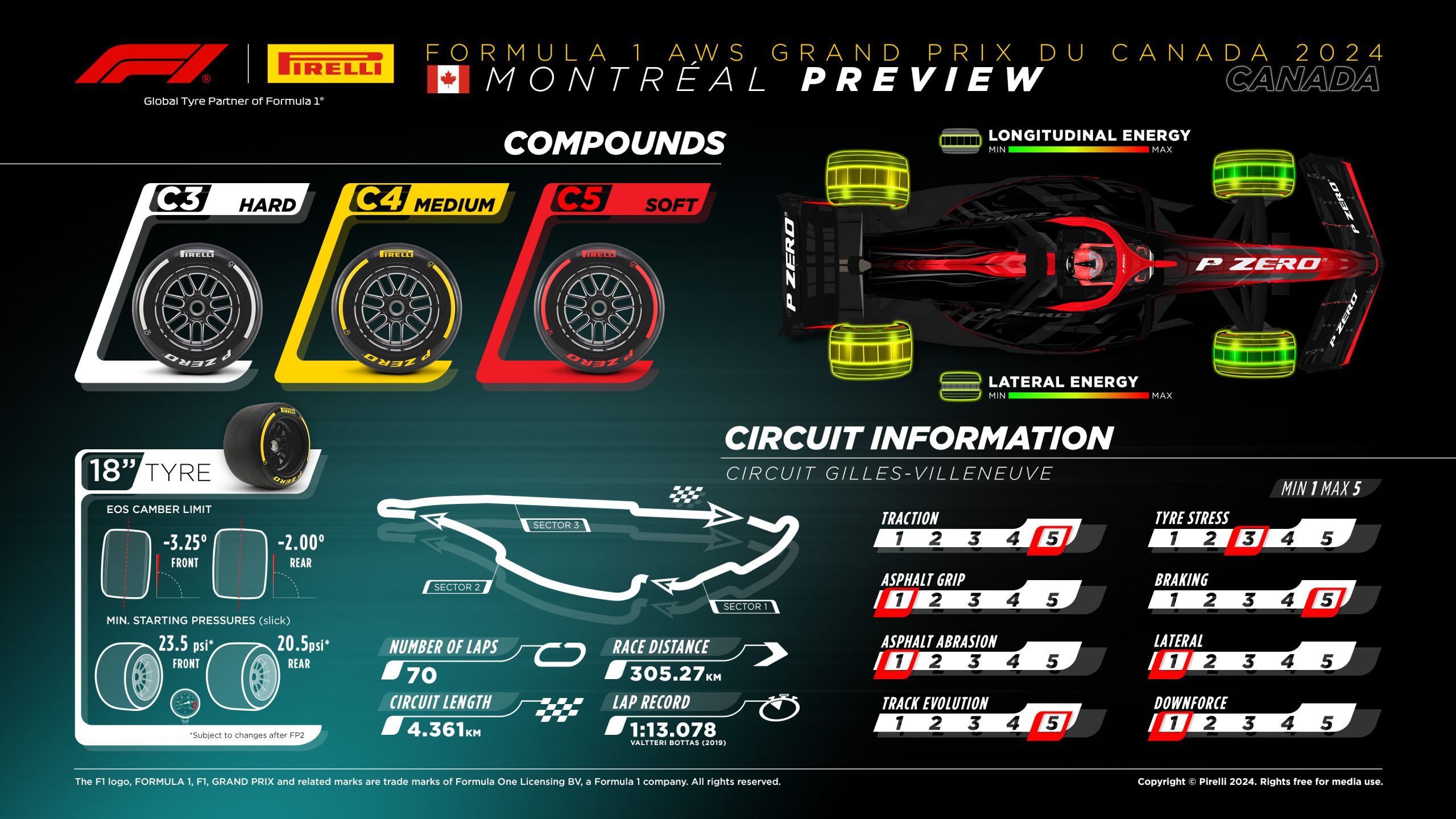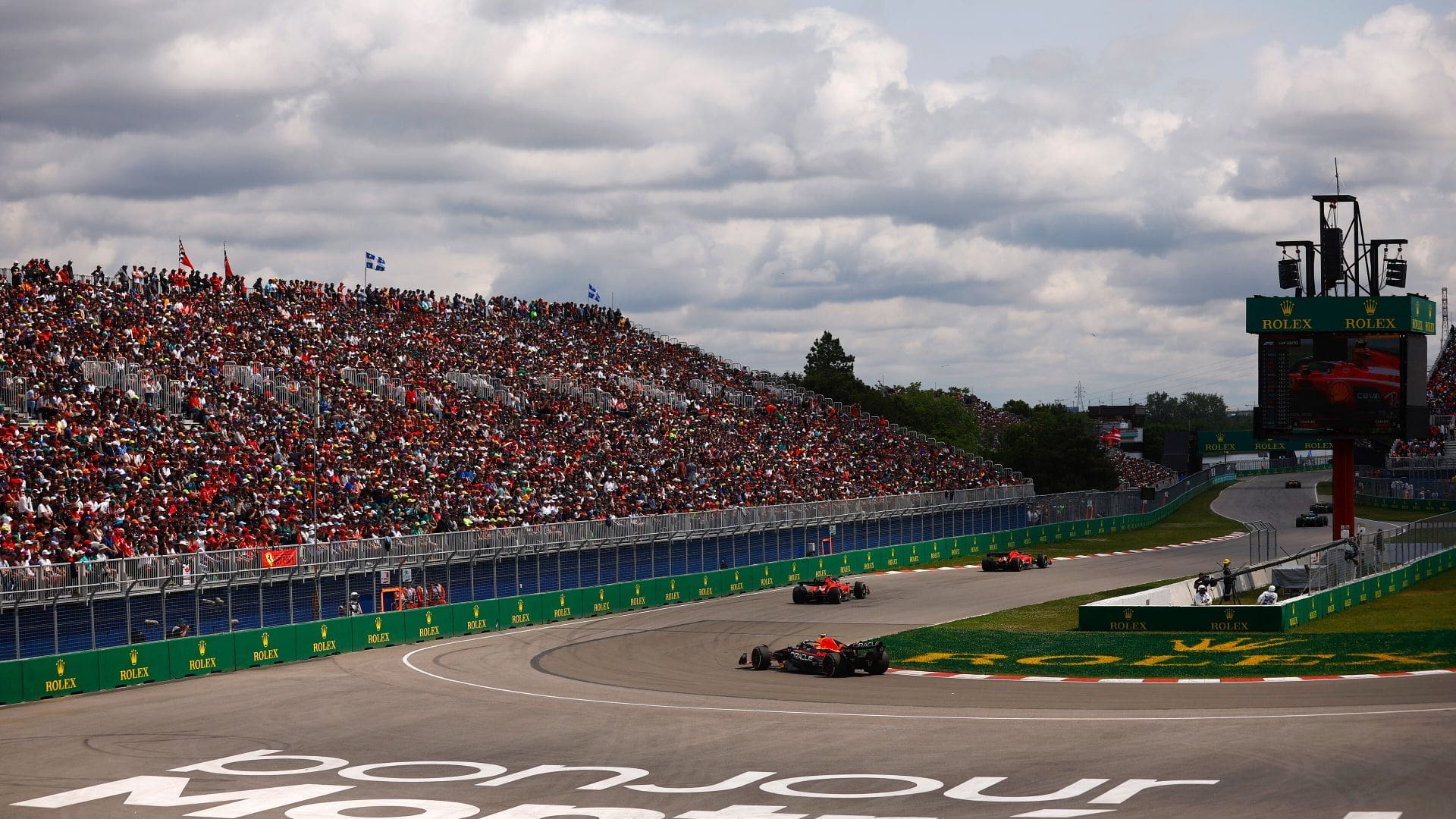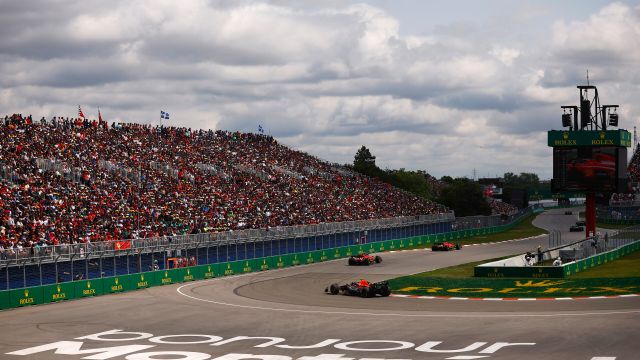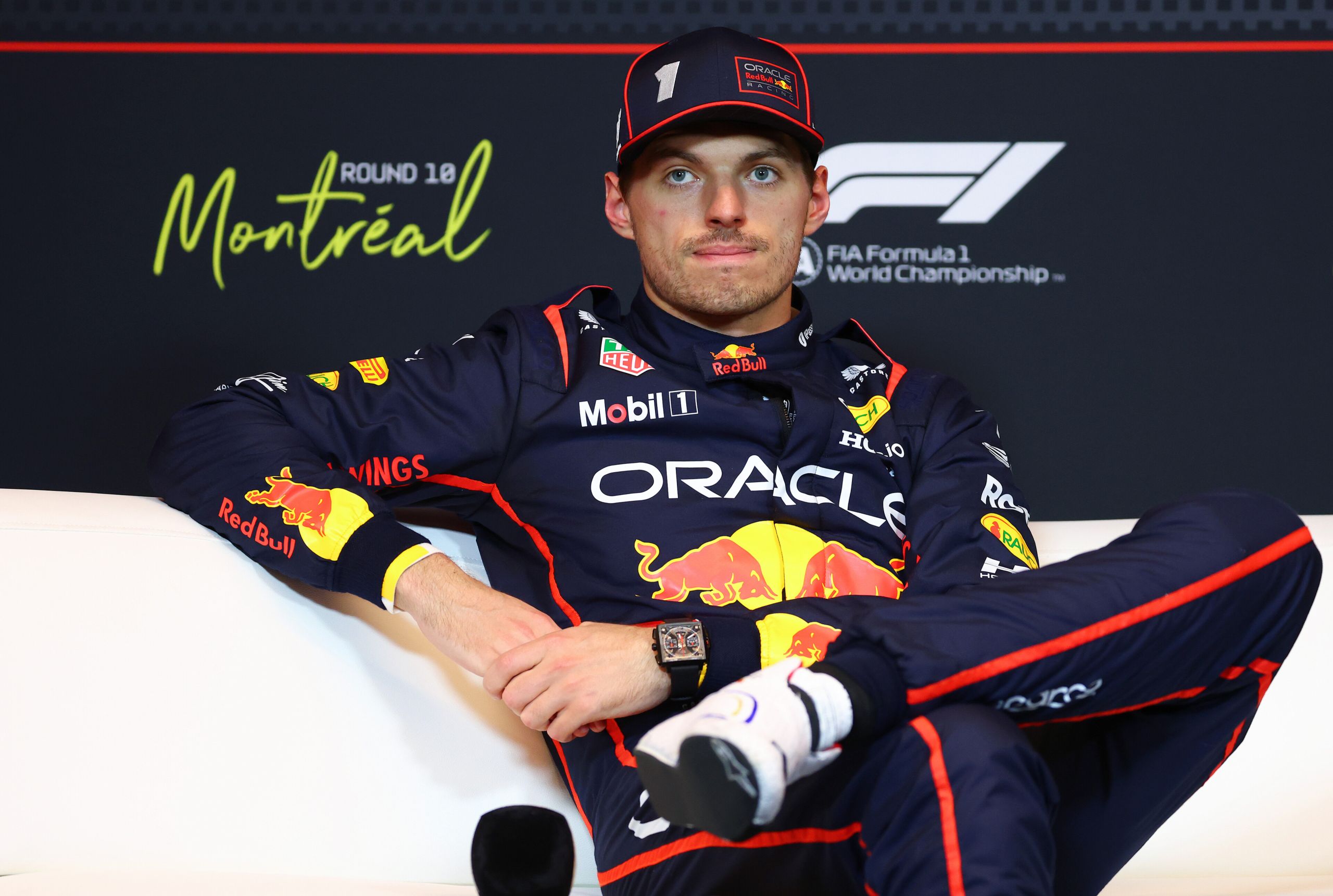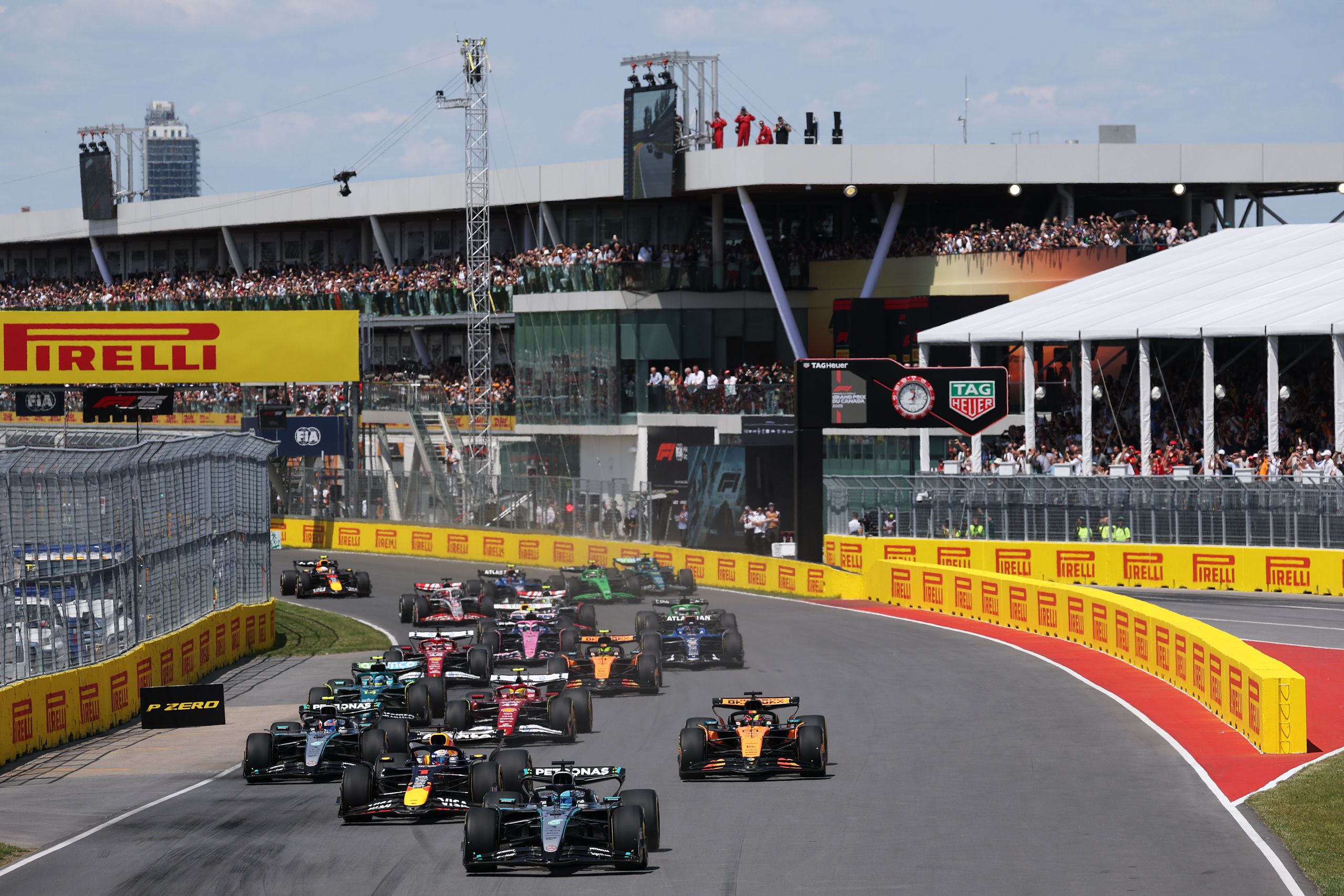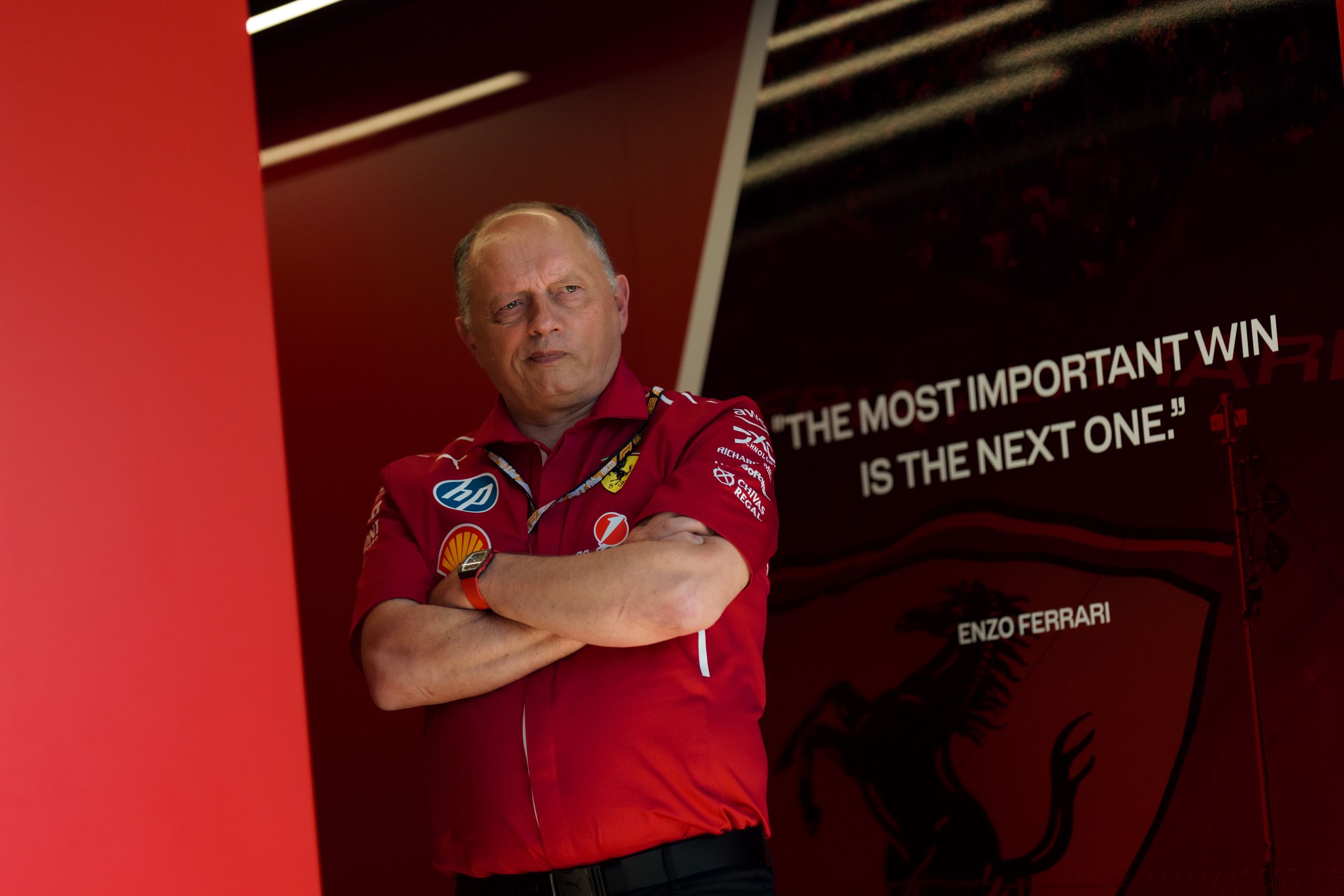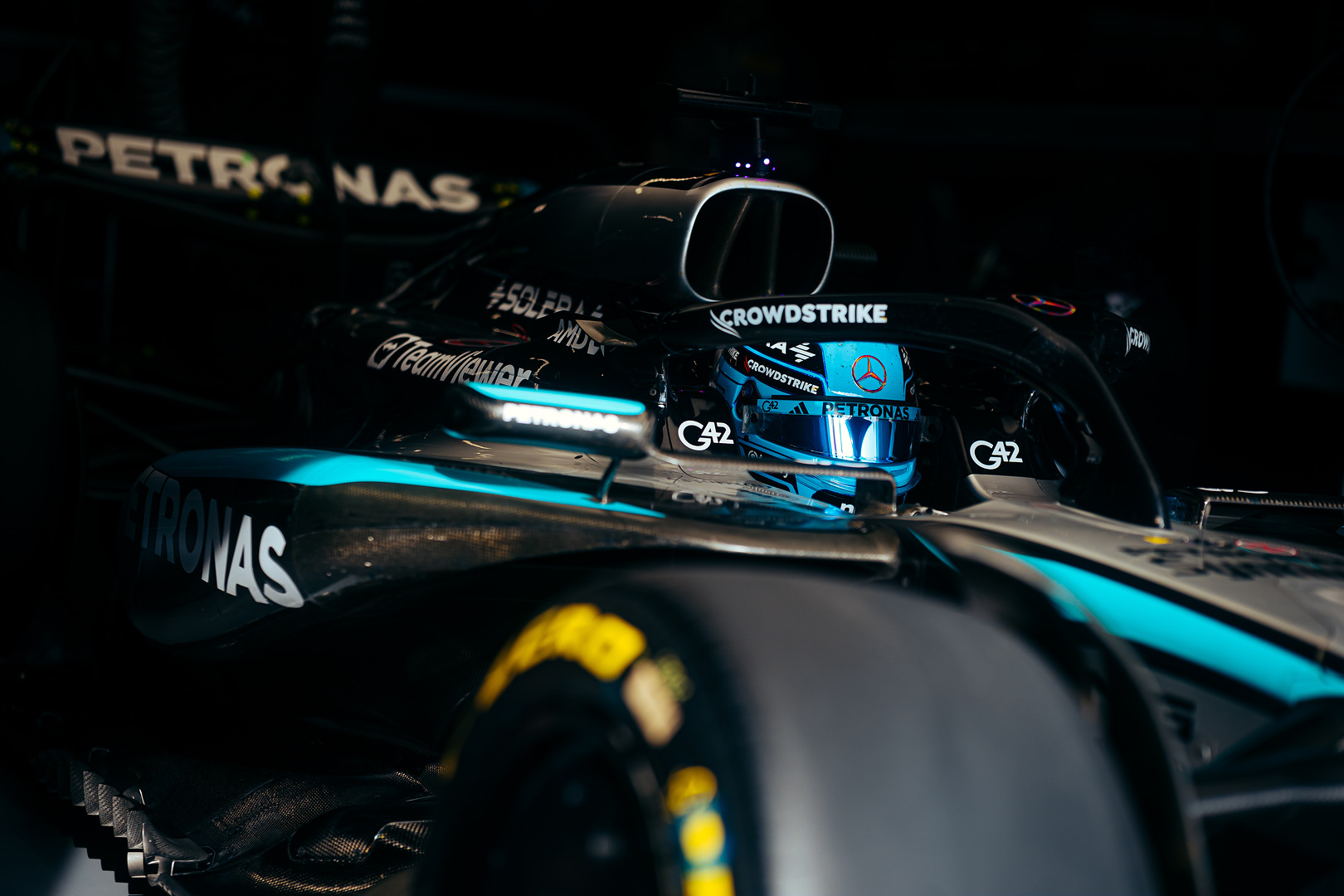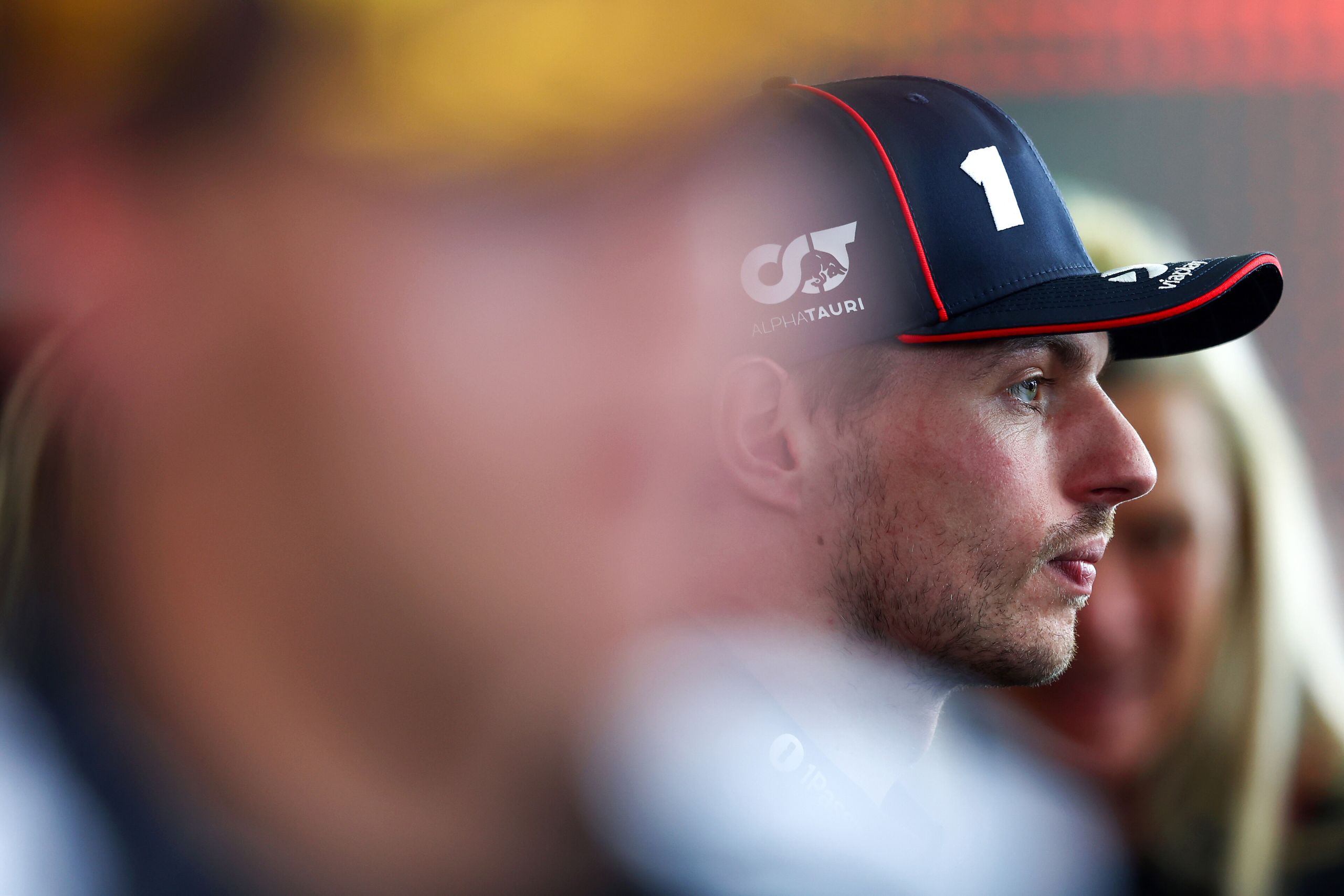Formula 1 returns to North America after two European rounds in Imola and Monaco. The Canadian Grand Prix therefore means a change of continent but it’s a case of status quo when it comes to tyre compound choice for the ninth round of the season, because the race in Montreal will be the third in a row to feature the three softest compounds in the 2024 range, namely the C3 as Hard, C4 as Medium and C5 as Soft and also the trio’s second consecutive appearance at the Canadian track, a semi-permanent circuit built on the manmade island of Notre-Dame, originally created for Expo ’67.
The 4.361 kilometre track is named in honour of Gilles Villeneuve and features six lefthand corners and eight to the right and it has one of the lowest average speeds of the season. Stability under braking and traction coming out of the chicanes and the slowest corners, which include the hairpin leading onto a very long straight, are the keys to being competitive, as is a car that can change direction quickly. Unlike the previous stop on the calendar in Monaco, overtaking is possible here, especially at the end of the straight leading to the final chicane, the exit to which features the “Wall of Champions,” thus named after three world champions, Damon Hill, Michael Schumacher and Jacques Villeneuve, all ended their races there in 1999, crashing into the wall on the outside of the turn.
The entire track has been resurfaced for this year and the kerbs have been replaced. On paper, the track’s existing characteristics of low abrasiveness and therefore reduced grip should remain the same, but the real indications will have to wait until the Pirelli engineers carry out their first measurement tests on Wednesday. For most of the year, the track is only used by people on foot or cyclists and so lap times generally drop significantly as the cars rubber-in the surface. Graining might also occur, especially on Friday and particularly with the softer compounds. The tyres are subjected to very low lateral forces, although the longitudinal ones are greater, but overall, Montreal is one of the easiest tracks of the season on tyres.
While we’re not looking at Monaco levels of proximity, here in Montreal, setting a quick time in qualifying involves getting very close to the barriers and walls, while making best use of the kerbs, so it’s also important for the driver to do as many laps as possible to gain confidence. Obviously, the slightest error is severely punished. That’s especially the case this year at the turn 4/5 chicane, where the old tarmac run-off area has been replaced with grass.
In last year’s race, all three dry compounds came into play with a mix of strategies with some drivers, including the three who finished on the podium, going for a two-stop while others pitted just the once, trying to lengthen the opening stint as much as possible. One has to take into consideration that the Safety Car is a frequent visitor and that a longer first stint therefore offers the best chance of minimising time lost changing tyres.
The weather, always very changeable in June, generally plays its part in the Quebec event. A cold, rainy, windy day, can be followed by sunshine and warmth, but temperatures can even vary considerably in the space of one day.
The Canadian Grand Prix first appeared on the Formula 1 World Championship calendar in 1967 and three circuits have hosted it. Apart from the current venue, the race was held at Mosport in Ontario eight times and twice at Mont-Tremblant, also in Quebec, just under 150 kilometres to the north of Montreal. There have been 52 editions and the most successful drivers are Michael Schumacher and Lewis Hamilton, who have both won it seven times and they also share the pole award with six apiece. McLaren rules the roost among the Constructors’ with 13 wins and 11 poles, while Ferrari has the most (37) podium finishes.
